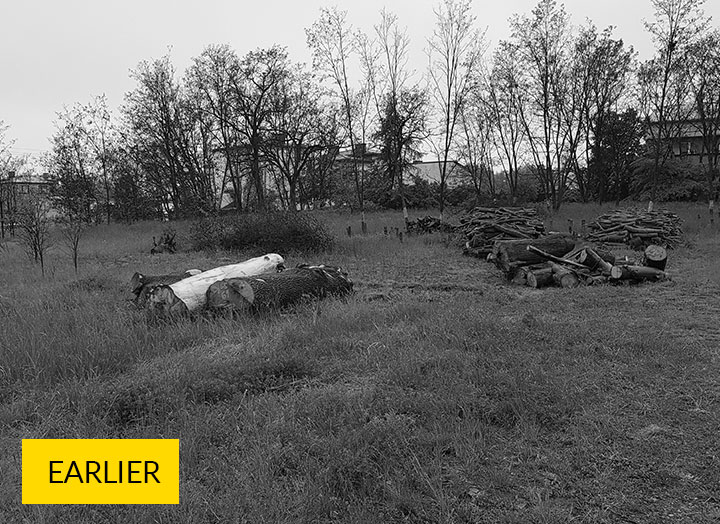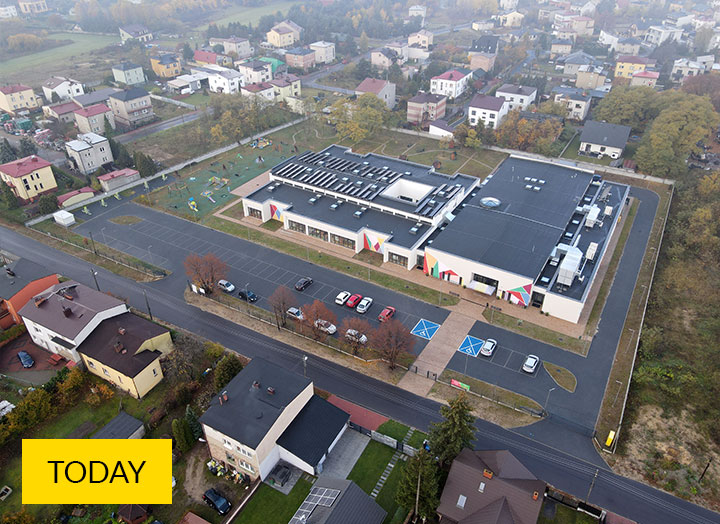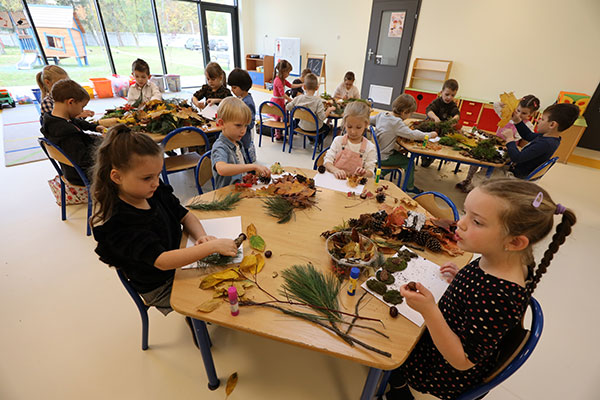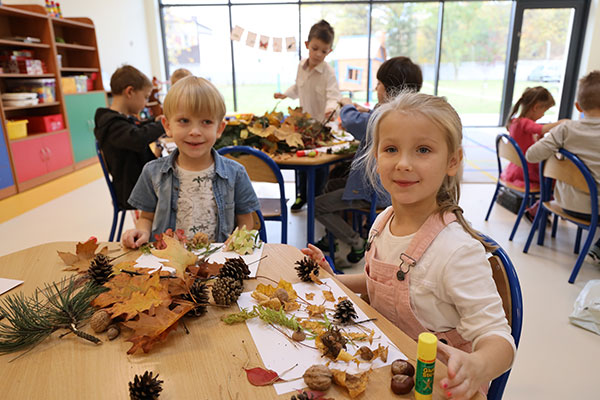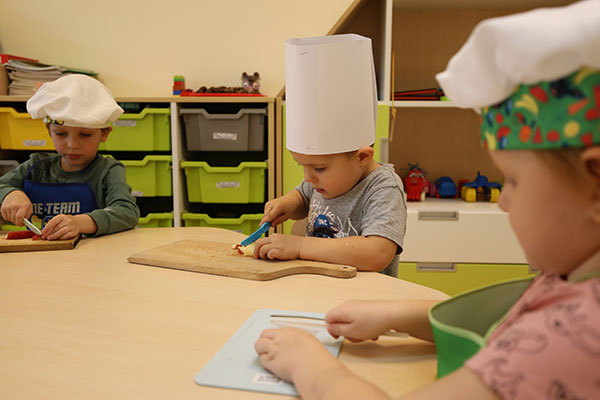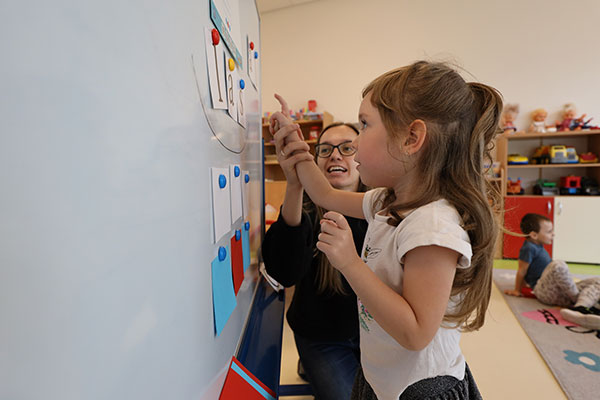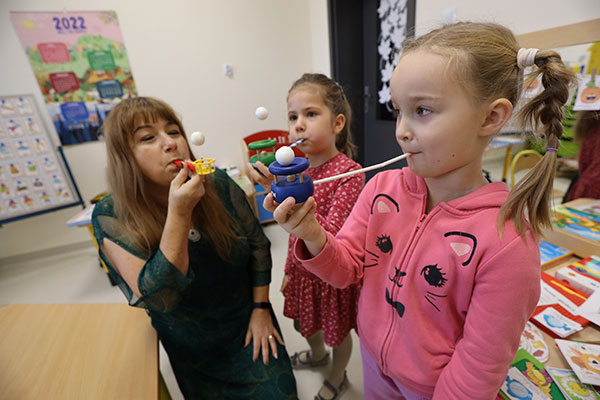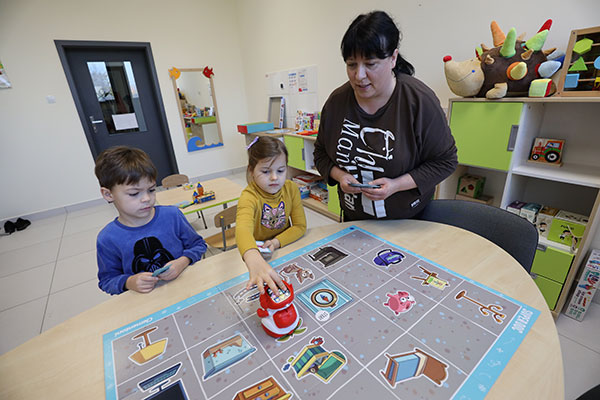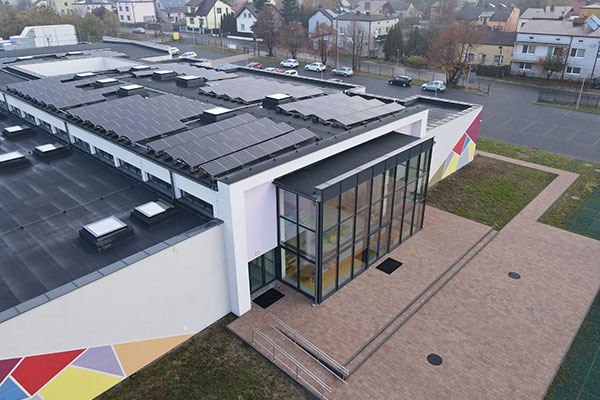Twinkle twinkle little star, how I wonder what you are
We want our children to receive the best possible care. And so we spent hours looking for the finest kindergarten. We ask friends, search online, and even hold family meetings. Because choosing the right facility is important but can be difficult at times. A great public kindergarten operates in Siewierz. Thanks to an EU grant, it has also had a new headquarters for two years.
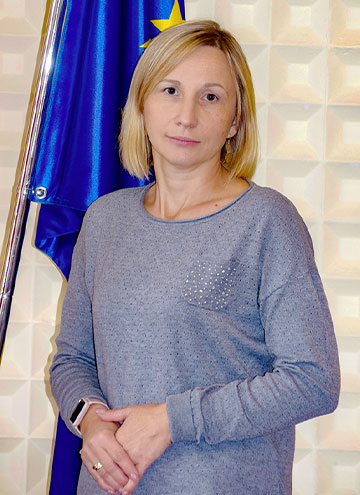
Joanna Trzcionka
Deputy Manager for Acquiring External Funds in the Department of Development, Investment, Funds and Public Procurement in the Office of Siewierz Town and Commune
The new building of a public kindergarten in Siewierz is a response to the needs of residents and the demographic changes taking place in our municipality. We wanted the children to be cared for in the best possible conditions. Unfortunately, the building that housed the public kindergarten for years was not owned by the municipality. We couldn’t expand it either, which meant that not all kids could be admitted and parents were forced to look for other options. Additionally, the facility did not meet current fire safety requirements. It is for these reasons that the municipality decided to build a new kindergarten. In February 2019, thanks to an EU grant, we moved forward with the investment.
In two years, a modern facility was built, with eight spacious teaching rooms, each with full sanitary facilities and toy storage. In addition, two sleeping rooms, rooms for corrective gymnastics and rhythmic classes, a sensory integration room and kitchen facilities with a dining room have been built. The building also houses an auditorium, which is not only used by kindergarten children, but for community meetings and celebrations by Siewierz residents. The administrative part includes a kindergarten office, a teachers’ room, a doctor’s office, a speech therapist’s office, a guidance counsellor’s office, a room for consultations with parents, as well as technical area. We also developed the area around the kindergarten and built a public, integration playground. It can be used by all children, not just those attending our facility.
The building is not only modern, but also energy-efficient. It has been adapted to the needs of children with disabilities. It is worth noting that at the same time as the construction of the kindergarten, a public nursery was being built, where full-day care is provided to children who are 12 months old or older. The new education and care infrastructure makes it much easier for parents to balance family and work life.
We are proud of the completed investment. We have managed to create a facility that will serve residents for many years.
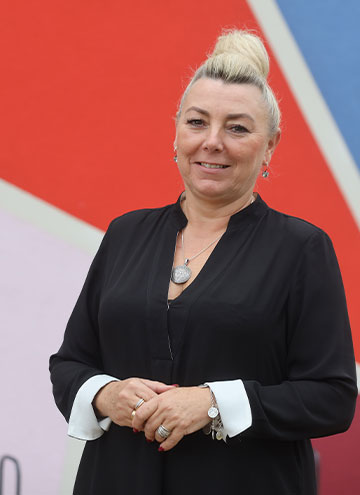
Joanna Kupczyk
Director of the Public Kindergarten in Siewierz
Preschool education allows children to find their way in a group of peers and shapes important social skills that will be needed in the future, including at school. It also teaches empathy and support for others. At our facility, we take care of children’s social, emotional, intellectual, linguistic, as well as motor development. Thanks to an EU grant, we were able not only to create one more kindergarten group, but also to organize a series of attractive additional activities.
More than two hundred children between the ages of three and six attend our facility. In addition to care activities, preschoolers receive speech therapy consultations. They also learn English and participate in art and movement activities. We also organize classes with a psychologist and a special education teacher. The program is complemented by workshops on dyslexia prevention, sensory integration and art therapy. This is because we have noticed that more and more children have problems with their motor coordination. Children also have problems with self-care, fastening buttons, tying shoelaces or performing simple manual tasks such as cutting with scissors or drawing. Some of our subjects react strongly to stimuli and have difficulty concentrating. There are also children with a different, non-neurotypical pattern of development who build relationships with the environment in a slightly different way. We try our best to support this group as well. Our specialists arrange activities in such a way that they are interesting for preschoolers and at the same time help to solve diagnosed problems. Our offer is really rich and children like our kindergarten.
To ensure that the quality of the support offered was at the highest possible level, we also invested in our teachers. Eleven of our educators have improved their qualifications through postgraduate studies and courses, particularly in working with children with special educational needs. Teachers are able to catch certain abnormalities in children’s development and ensure early reaction. To this end, we also hold regular consultations with parents.
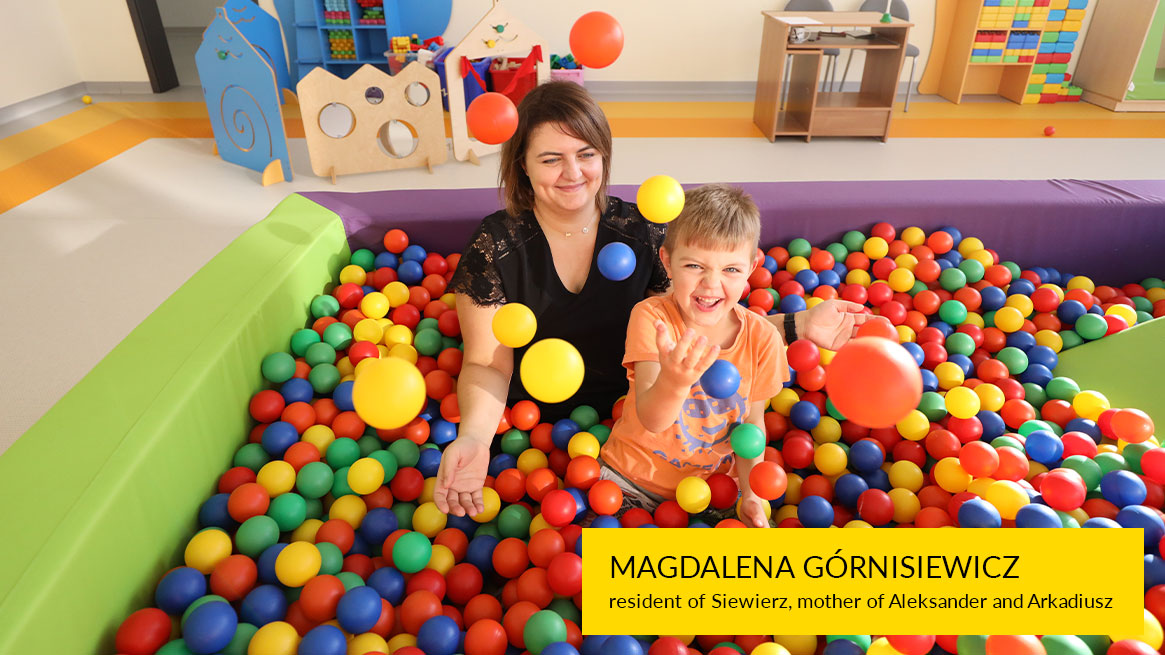
For the past nine years, I have been working as a preschool teacher in our kindergarten in Siewierz. The old headquarters was cramped, and we didn’t have room for movement classes or conducting specialized development classes. We were also unable to admit all applicants due to the lack of space. The new headquarters is beautiful. It is modern, functional and spacious. I am glad that the comfort of the little ones has been so well taken care of. We have bathrooms in each room. Children do not have to wait in lines or go through other rooms to get to the bathroom. It is very convenient. It is also very important that the entire facility is fully adapted to children with disabilities.
My sons are in love with the new kindergarten as well. Arek was here for a year, now he has already started school. Olek is still taking advantage of all the facility has to offer. And this offer is wide. As a mom, I especially appreciate the introduction of activities developing social-emotional skills. My younger son was a hyperactive child with difficulties in concentration and constant need to seek additional stimuli. In sensory integration classes, through play and use of appropriate techniques, the therapist tried to eliminate and suppress undesirable behavior. After a year of therapy, Olek has made good progress. He can focus his attention on the task without seeking additional stimuli. He is also calmer. It is worth noting that sensory integration classes are held in our kindergarten in a room specially adapted for this purpose and equipped with specialized therapeutic equipment. This is a major convenience. I would add that parents of children diagnosed with developmental problems can benefit from consultations with specialists throughout all their preschool education. The therapists will advise on how to work with children at home and discuss their progress. Our children are well cared for, they feel safe and happy here.
Kindergarten kids are particularly crazy about the playroom. It’s a place where they can blow off some steam between classes. Working in a kindergarten gives me great satisfaction of observing children’s progress. The current offer of the new facility allows us to conduct really interesting and developing activities.
Say it the Silesian way:

rojber:
mischief maker

sebuć sie:
take off your shoes

abecodlorz:
alphabet
Project:
Ensuring full accessibility to pre-school education in Siewierz Municipality through the construction of a modern kindergarten with integration units in Siewierz
Beneficiary: Siewierz Commune
Project value: approx. 15.8 million PLN
RPO SV co-financing: approx. 9.2 million PLN
Implementation period: September 2019 - July 2021
Project:
Development of pre-school education in Siewierz Municipality through dissemination and improvement of the quality of pre-school education
Beneficiary: Siewierz Commune
Value of the project: approx. 494 thousand PLN
ROP SV subsidy: approx. 420 thousand PLN
Implementation period: July 2017- August 2022






